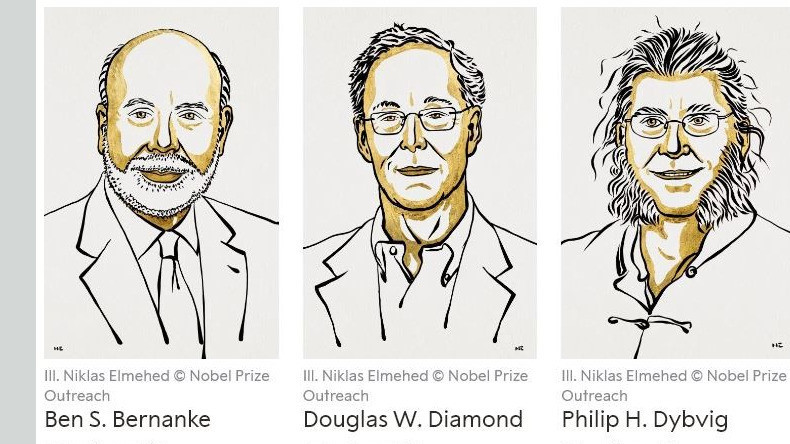
Nobel economics prize winners announced
Former U.S. Federal Reserve Chair Ben Bernanke, who put his academic expertise on the Great Depression to work reviving the American economy after the 2007-2008 financial crisis, won the Nobel Prize in economic sciences along with two other U.S.-based economists for their research into the fallout from bank failures, AP reported.
Bernanke was recognized Monday along with Douglas W. Diamond and Philip H. Dybvig. The Nobel panel at the Royal Swedish Academy of Sciences in Stockholm said the trio’s research had shown “why avoiding bank collapses is vital.”
With their findings in the early 1980s, the laureates laid the foundations for regulating financial markets and dealing with financial crises, the panel said.
Bernanke, 68, now with the Brookings Institution in Washington, examined the Great Depression of the 1930s, showing the danger of bank runs — when panicked savers withdraw their deposits.
Diamond, 68, based at the University of Chicago, and Dybvig, 67, who is at Washington University in St. Louis, showed how government guarantees on deposits can prevent a spiraling of financial crises.
“The laureates’ insights have improved our ability to avoid both serious crises and expensive bailouts,” said Tore Ellingsen, chair of the Committee for the Prize in Economic Sciences.
Their research took on great real-world significance when investors sent the financial system into a panic during fall 2008.
Unlike the other prizes, the economics award wasn’t established in Alfred Nobel’s will of 1895 but by the Swedish central bank in his memory. The first winner was selected in 1969.
Newsfeed
Videos






























